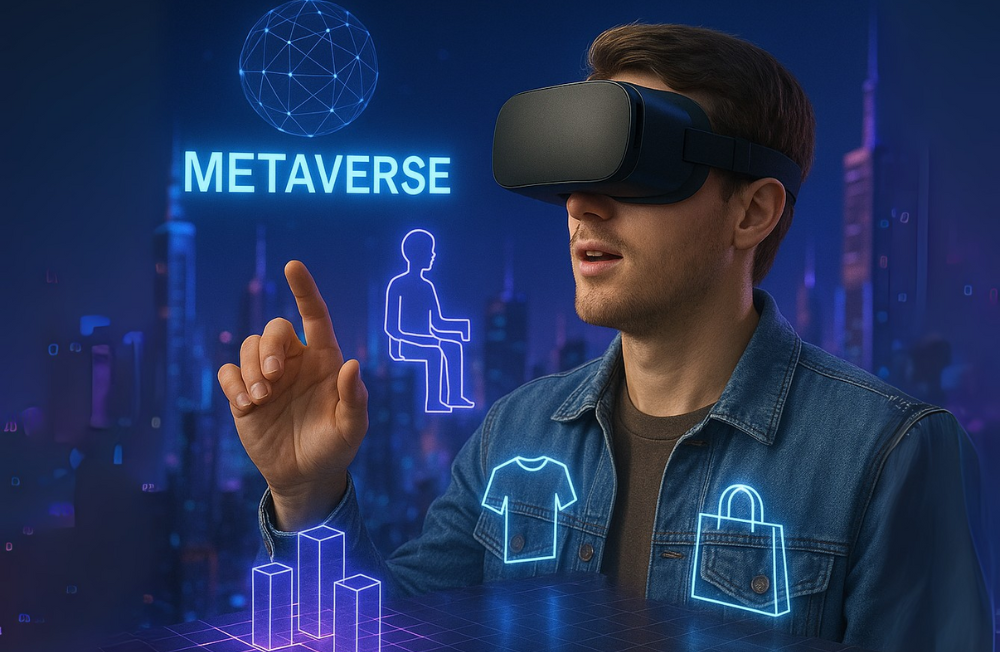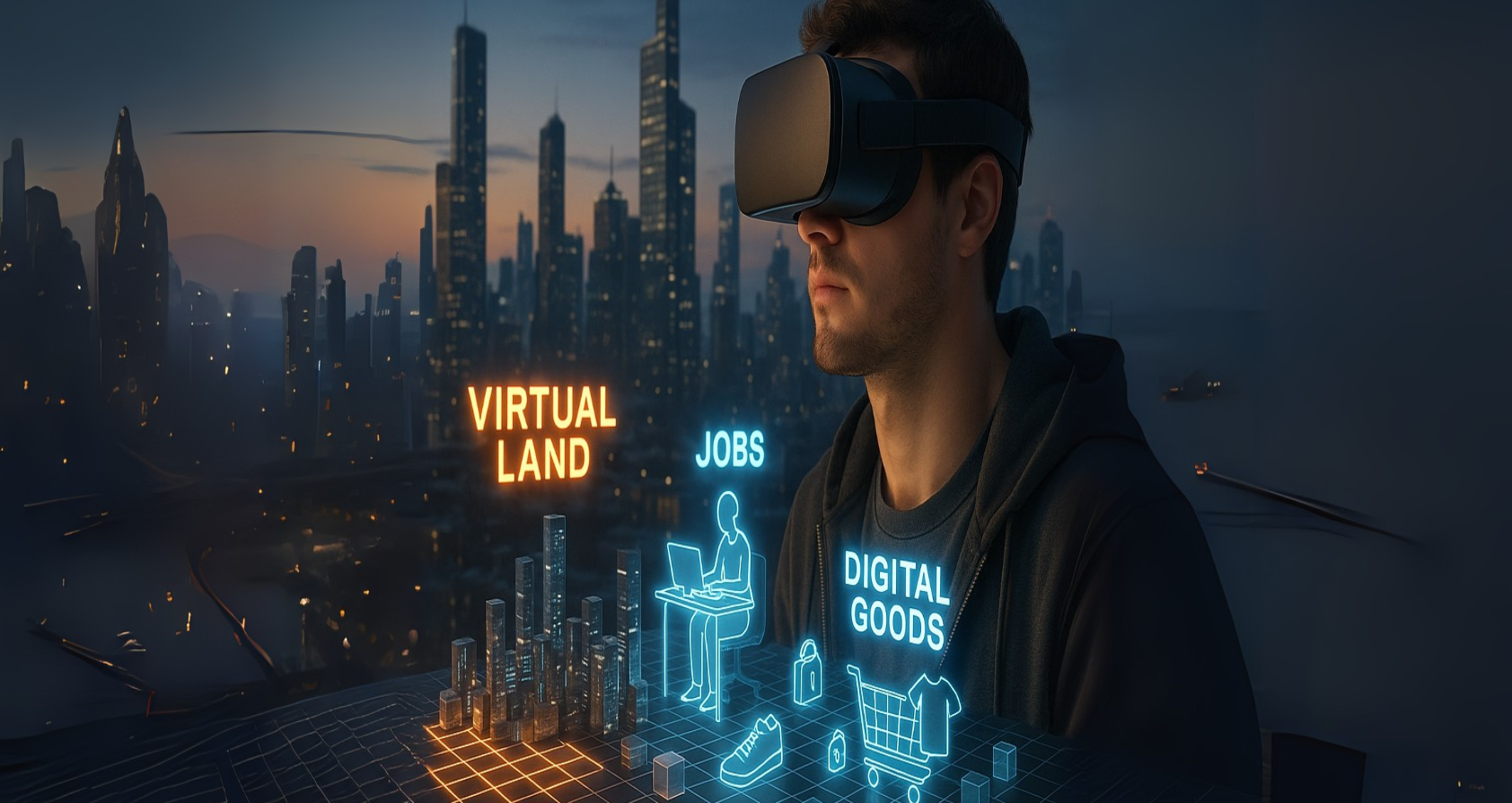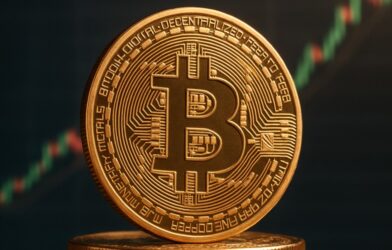The concept of the metaverse is no longer the preserve of science fiction or gaming forum discussions. It is rapidly emerging as a digital economy unto its own, where individuals are not only gaming but also working, investing, and generating wealth. At its core, the metaverse is immersive virtual worlds—enabled by blockchain, VR, and AR—where individuals live, play, and engage. And just as in the real world, economic activity is surfacing in three broad categories: virtual land, digital jobs, and goods that have an entirely online existence.
Holding Land in the Virtual World
Whereas the internet was once a flat website, the metaverse is developing like a 3D city where land is worth something. Decentraland, The Sandbox, and Otherside, among other platforms, enable buyers to purchase pieces of virtual land as NFTs. These parcels have a limited supply, making them rare and, as such, more valuable. These pieces of land can be used by owners to construct virtual houses, offices, stadiums, or shopping stores. For example, companies like Adidas, Gucci, and Atari have already purchased land in The Sandbox to develop virtual experiences for users.
The economics are remarkably close to real estate in the physical world. There have been some parcels of land in well-liked areas—like in front of a virtual plaza or close to a celebrity’s virtual mansion—that have sold for millions of dollars. Developers can lease their land, stage virtual concerts, construct casinos, or introduce branded experiences. As more users enter the metaverse, the demand for strategically located land climbs, reflecting the property mechanics of major cities in the real world.
Metaverse Jobs
With land and territories to construct on, comes the demand for employment. The economy of the metaverse is giving rise to completely new occupations. Virtual architects plan digital buildings, fashion designers produce avatar attire, and event coordinators plan metaverse concerts. There are also jobs available for moderators, customer service representatives, and marketers—all operating within virtual realms.
Play-to-earn platforms also brought about a labor force that obtains remunerations from playing. Axie Infinity, for instance, provided players, particularly from nations such as the Philippines and Venezuela, with real-world earnings by breeding and fighting NFT animals. Although these remunerations change based on market conditions, gaming as work has come to be acceptable.
Large businesses are testing the waters too. Firms such as PwC and JPMorgan have ventured into the metaverse, recruiting groups to construct virtual offices or client rooms. Soon, in the near future, it’s not hard to imagine job interviews, training sessions, or even office meetings occurring in rich virtual environments. This paves the way for a whole “metaverse labor market,” where working remotely is taken to a different dimension.

The Rise of Digital Goods
In addition to land and employment, one of the largest pillars of metaverse economics is virtual goods. These are items such as avatars’ clothing, furniture for virtual homes, and even artwork to put on digital walls. As in the real world, self-expression fuels consumption. Consumers purchase sneakers, jewelry, or cars for their avatars because such items convey identity and status in virtual society.
NFTs come into play here. They turn digital objects unique and tradable, and ownership is guaranteed to be verifiable. Roblox and Fortnite already have well-established economies based on virtual goods, although not yet decentralized. In Fortnite, for example, billions of dollars are spent on skins and cosmetics each year. As blockchain-backed goods gain traction, players will be able to carry their possessions between various virtual worlds—a jacket purchased in one metaverse can eventually be worn in another.
Even experiences are turning into goods. A ticket to a virtual concert, membership to a private digital club, or special privileges to a celebrity’s time in the metaverse can all be turned into NFTs. This opens up completely new markets for creatives, entertainers, and influencers to turn their fan base into a money maker.
Why the Metaverse Economy Matters
The metaverse is not all about fun—it is about the future of work, business, and ownership. Economists estimate the metaverse economy may be worth trillions in the next decade. If the internet was information and e-commerce, the metaverse is ownership and experience. Each purchase, each employment, and every interaction becomes a part of a digital economy that is increasingly merging with the physical one.
The very notion of value is changing. The virtual jacket may not exist in reality, but if millions of people live their social lives in the metaverse, its value is as tangible as any designer wear. The digital patch of land may not be real, but if brands use it to entertain thousands of customers, its business value is certain.
With every emerging economy, there is risk—overvaluation, speculation, and uncertainty of regulation—but the trend is evident. Virtual land, digital employment, and online products are not quirks. They are becoming pillars of a new economic system where the line between real and virtual wealth grows thinner.












Tnews
Whether it\'s breaking news, expert opinions, or inspiring athlete profiles, your blog delivers a winning combination of excitement and information that keeps.
Tnews
The way you seamlessly blend statistical insights with compelling storytelling creates an immersive and captivating reading experience. Whether it\'s the latest match updates, behind-the-scenes glimpses.